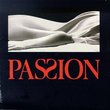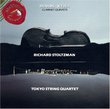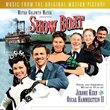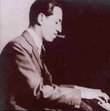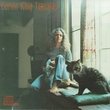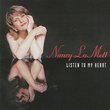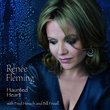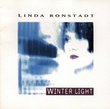| All Artists: Dawn Upshaw, Drew Gress, Tom Rainey, Eric Stern, John Manasse, Richard Rodney Bennett Title: Dawn Upshaw Sings Vernon Duke Members Wishing: 1 Total Copies: 0 Label: Nonesuch Original Release Date: 1/19/1999 Release Date: 1/19/1999 Genres: Pop, Classical, Broadway & Vocalists Styles: Vocal Pop, Opera & Classical Vocal, Musicals, Traditional Vocal Pop Number of Discs: 1 SwapaCD Credits: 1 UPCs: 075597953121, 603497076260 |
Search - Dawn Upshaw, Drew Gress, Tom Rainey :: Dawn Upshaw Sings Vernon Duke
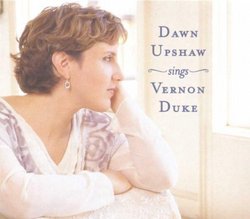 | Dawn Upshaw, Drew Gress, Tom Rainey Dawn Upshaw Sings Vernon Duke Genres: Pop, Classical, Broadway & Vocalists
Dawn Upshaw's vocals have graced a heap of recordings, none of them quite like this collection of Vernon Duke's songs. Duke, composer of such musicals as Cabin in the Sky, which has a rousing full soundtrack from the 1943 ... more » |
Larger Image |
CD DetailsSynopsis
Amazon.com Dawn Upshaw's vocals have graced a heap of recordings, none of them quite like this collection of Vernon Duke's songs. Duke, composer of such musicals as Cabin in the Sky, which has a rousing full soundtrack from the 1943 film production, wrote variously sugary and Gershwin-esque pop songs along with some "serious" music. Upshaw breezes through the pop and Gershwin-colored items, offering them a level of vocal clarity that's rarely matched. The arrangements are lovely, and with lyrics by Ogden Nash, Ira Gershwin, and Howard Dietz, the songs are apt for Upshaw's sly spin on pop vocals. Sure, Upshaw's sung Rodgers and Hart and some Gershwin, but she's also done great classical recitals, like those around Samuel Barber's Knoxville: Summer of 1915. So the playful rundowns of Duke's poppier material might only hint at Upshaw's full range (as evidenced by Gorecki's Symphony No. 3 and her collection of Debussy songs), but they're fun and colorful. Indeed the excerpt from Duke's 1942 "Five Victorian Songs" is nicely more complex. And if you're wondering where to hear Upshaw singing in a decidedly more adventurous context, dig into the Arditti String Quartet's second Schoenberg collection and the Kronos Quartet's Night Prayers. --Andrew Bartlett Similar CDs
Similarly Requested CDs
|
CD ReviewsUpshaw Astounds Again: Brings Duke to Life, and Back to Life 02/19/1999 (5 out of 5 stars) "If anyone needed it, this album is solid proof that Dawn Upshaw's overwhelmingly positive reception in the popular field is no more dependent on sticking with charming chestnuts than her success in classical music was. Extending her commitment from the modernist George Crumb and the Kronos Quartet to Vernon Duke--most of whose works are even less known, despite the label "popular music"--she continues to enrich our experience and establish for future performers the standard repertoire, as well as the standard of performance. In interviews, Dawn Upshaw has said her sound on this album focuses on getting back to "the message" the song conveys, losing the obsession with physiology and mechanical precision. She sings on the consonants; she hits some explosive notes; she slides around. And the effect is wonderful. Sometimes even enthralling, as in "Water Under the Bridge", as her voice and the music and the words all merge into a shimmery liquid, or "Remember or Forget", whose lovely orchestration presents, with its alpine range of emotional expression, a challenge Dawn gracefully surmounts. Vernon Duke gives Dawn's voice a chance for expression in a way few "popular" pieces can. Some of the easiest to relate to, like "Round About", contain sections of vocal skips that would raise the hairs of a Lotte Lenya; Dawn gives "Swattin' the Fly" the difficult, intense patience it needs to be effective. It's no accident that few songs besides "Autumn in New York" and "April in Paris"--the only Duke works remembered today--stay in one key for long or have hummable melodies. (Not too hummable, in fact.) Again: if there was any doubt that Dawn is the most deservedly successful of the classical-to-popular transplants, this album lays it to rest. She moves in this uncharted territory infinitely more surely than Kiri Te Kanawa trying to sing standard Gershwin fare even with fifty years of interpretation to fall back on. This album, with its surface attractions and deep-felt rewards, may be the biggest resuscitation of an unjustly underperformed work since Sorrowful Songs." Album of beautiful rarities Sasha | at sea...sailing somewhere | 12/06/2000 (5 out of 5 stars) "If you think that opera singers shouldn't dabble in a world of popular songs,listen to this:expensively produced,well orchestrated and beautifully sang,with lots of never-heard songs and verses.Since the first moment I heard Dawn Upshaw in a friend's house (it was her "I Wish It So",which I have to had right now that moment,almost stealed it) I loved her style and this album was again another discovery.I'm not easy to please musicaly,but cannot find a single flaw on this album.Duke Vernon was a composer overshadowed by Gershwins,Porter,Rodgers and Hart and other celebrities of his time,remebered only for his beautuful "April in Paris" and "Autumn in New York".I knew that Dawn is a magnificent singer,but she gave us a wonderful gift with this album:the whole new generation of listeners are discovering music of this half-obscure,moody and impressionistic russian guy." Delightful Helpful Reviewer | Virginia USA | 12/29/2004 (5 out of 5 stars) "Delightful: there's no better word to describe this recording. Upshaw succeeds on so many levels. First and foremost, it is an entertaining work. Nothing heavy, nothing forced. It is fun and very easy to listen to. In addition, her vocal production is marvelous. The quality of her singing, her technique, is a joy to behold. This recording should serve as a prime example for students of singing. You can be entertaining, approachable, "real" and still maintain exquisite technique. Finally, her singular interpretations of these songs are just wonderful. Try to sing along. You can't. These interpretations belong to her and her alone. Her phrasing is rarely predictable, notes are rarely produced in the expected manner. It is usually easy to dismiss classical singers' crossover albums and justifiably so. Most are schlock. Upshaw's crossover recordings are, however, delightful. Deceptively simple, they are masterpieces of the genre."
|

 Track Listings (14) - Disc #1
Track Listings (14) - Disc #1

